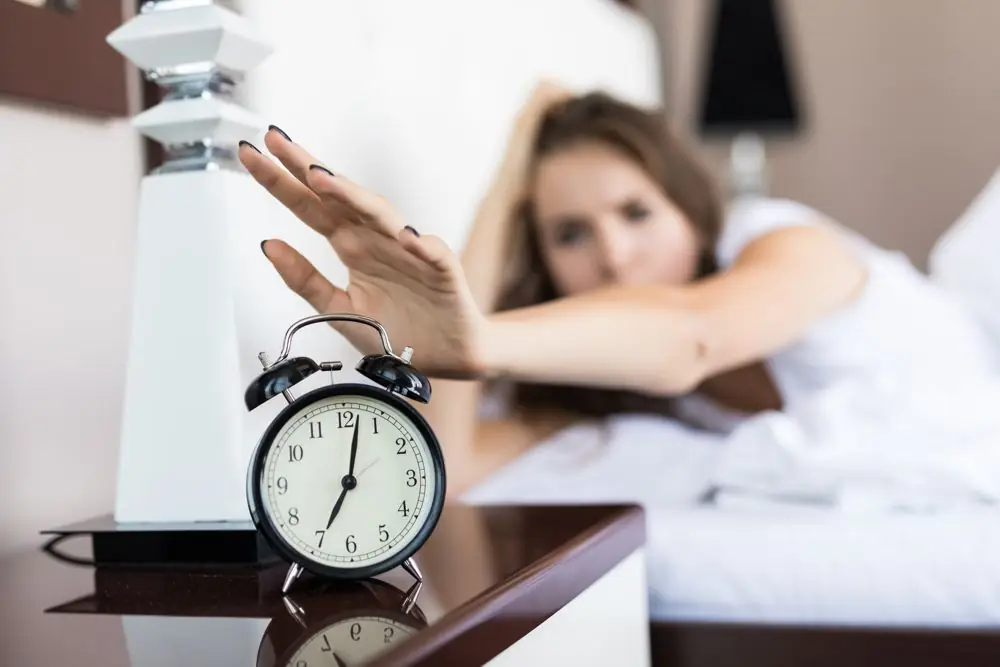What Causes Dizziness in the Morning: A Complete Review

If you find yourself struggling to stand up from the bed because the room seems to spin around, you suffer from a dizzy spell. What causes dizziness in the morning? What are the typical symptoms of this condition? What should you do to reduce your risk of falls?
Read on, and you will find the answers to all these and numerous other questions.

Typical Symptoms
People who suffer from dizzy spells in the morning usually describe them as causing these sensations:
- Spinning or uncontrolled motion
- Feeling light-headed or going to faint
- Inability to keep one’s balance
- Feeling like you are floating above the floor
- Unsteadiness
These symptoms usually worsen when you change the position of your body and try to move your head or stand up. Sometimes dizziness is accompanied by nausea.
What Can Cause Dizziness in the Morning: Possible Reasons
What causes a person to be dizzy in the morning is not a simple question to answer, as there are numerous possible reasons for this condition. Here are the most probable of them.
Lack of Sleep
If you had a sleepless night, you are bound to feel groggy, tired, and sleepy in the morning; feeling dizzy and lightheaded is also not uncommon. While a cup of coffee can usually help you feel better, if you regularly neglect to have enough sleep (i.e., eight uninterrupted hours of it), your overall health can deteriorate very quickly.

Pregnancy
Both morning sickness and dizziness are well-known symptoms of early pregnancy: their usual causes are fluctuations in hormone levels and elevated blood volume. If you are also missing a period, you might want to buy a pregnancy test.
Ginger ale is a time-tested remedy for morning sickness that can also be used to alleviate the symptoms of dizziness.
Low Blood Pressure
When you get up from the bed, the blood heads to your abdomen and legs. If your blood pressure is normal, these changes in blood volume can be restored very quickly, and you don’t notice them. If, on the other hand, you have a condition called orthostatic hypotension, when your body cannot increase blood flow to the brain fast enough, you can suffer from drops in blood pressure levels when trying to get up from the bed.
Mild orthostatic hypotension is a common condition in the elderly. If your symptoms are persistent and seriously impair the quality of your life, see a doctor to find out what you can do about them. Such medications as Amatine (midodrine), Northera (droxidopa), and Florinef (fludrocortisone) are often used to treat the causes of orthostatic hypotension.

Dehydration
Dehydration is one of the major causes of low blood pressure at any age. The reason for this is very simple: if your body doesn’t get enough fluid, the volume of blood goes down, and so does your blood pressure. As your brain cannot receive enough blood, you feel dizzy — especially when you quickly change your body’s position.
To rehydrate your body, you need to increase your daily consumption of fluids (clear water is the best possible choice) and eat more during the day. If you suffer from a severe case of dehydration, you might need an IV with electrolytes.
Side Effects of Medications
Numerous medications (among them antidepressants, prostate and anti-seizure drugs, allergy medications, and various others) have the side effect of reducing blood pressure.
If you have recently started to take a new medication, morning dizziness can be a sign that you need to discuss with your doctor whether your therapy needs adjustments.

Sleep Apnea
If you have a condition called sleep apnea, you suffer from episodes of interrupted breathing during sleep. While most times this happens because of a blockage of airflow by the muscles in the throat (obstructive sleep apnea), sometimes a person’s breathing simply stops for a short time (central sleep apnea). In either case, you don’t get enough quality sleep (as you have to wake up regularly to take a gasping breath), and your body does not receive the proper amount of oxygen.
People who suffer from sleep apnea often wake up in the morning feeling dizzy and exhausted. If episodes of morning lightheadedness are regular and you know that you snore, you need to discuss these symptoms with your doctor.

Low Blood Sugar
Low blood sugar levels (hypoglycemia) can lead to chemical and hormonal changes that may cause a feeling of shakiness and dizziness in the morning. Other symptoms of hypoglycemia include fatigue and feeling sick.
People with diabetes who take such medications as insulin or sulfonylureas are especially prone to episodes of low blood sugar. If they fail to eat supper, drink too much alcohol, or overexert themselves, their blood glucose levels can drop significantly. If you have diabetes, it is extremely important that you maintain a healthy diet and abstain from alcohol.
Benign Paroxysmal Positional Vertigo (BPPV)
Your inner rear is an organ that enables you to keep your balance. If it is damaged (typically, this involves a small crystal moving around one of the inner ear’s semicircular canals), you may lose your balance when you move your head.
If you have BPPV, it seems like the room is spinning around you; there can also be such symptoms as nausea and vomiting. This feeling can last up to a minute and then calms down (usually because loose crystals settle in a new position inside the inner ear).
The good news is that the causes of this condition are easily treatable, as there are sets of movements that you can do to restore the crystals to their proper positions. You need to see a doctor (an audiologist or physical therapist) to learn these movements.
It also needs to be mentioned that if you have sinus issues or suffer from a cold, swelling in your sinuses can disrupt the balance of the liquid in the inner ear, which can also lead to vertigo. Luckily, you usually have a cold for less than a week; then again, to treat chronic sinus issues you will need to see an otolaryngologist (an ear-nose-and-throat doctor).

Heart Failure
Heart failure means that your heart cannot pump enough blood around your body. When you change the position of your body, this leads to sudden drops in blood pressure, which in turn lead to vertigo and dizziness.
If you know that you have cardiovascular issues and your dizzy morning spells persist, see a doctor without delay.
What Can I Do to Reduce Morning Dizziness?
If your symptoms are caused by dehydration, it is important that you drink enough water during the day. If you work outside, have a physically demanding job, or engage in strenuous exercise, you need to drink at least 8 cups of water a day (even if you don’t have a thirst). The same goes for pregnant women and people who sweat a lot because of the hot climate.
Do not drink alcohol before bed (alcohol is one of the major causes of dehydration). You might also want to drink a glass of water before going to sleep.
If you are well-hydrated but still often feel dizzy in the morning, you might have a medical condition that needs to be evaluated by a doctor.
Risk of Falls
Dizziness and vertigo greatly increase your risk of falls. Here is what you should do:
- Take your time sitting on a bed until you find your sea legs: usually, it takes two or three minutes.
- If you suffer from dehydration, drink a cup or two of water.
- When you feel better, stand up very slowly, but do not hurry to get away from the bed. Pause for some time to make sure that you no longer have any symptoms.

FAQ
In this section you will find the answers to the most common questions about morning dizziness.
What Causes Extreme Dizziness in the Morning when You Wake Up?
There can be numerous reasons for this condition. If it is the first time you have woken up dizzy, chances are you didn’t have enough sleep, suffered from dehydration, or experienced an unpleasant side effect of a new medication.
If this symptom persists, you need to see a doctor, as possible explanations can involve having low blood pressure or low blood sugar, suffering from sleep apnea, or having an inner ear condition. What’s more, as persistent morning dizziness can also be an indicator of heart failure, it is important that the doctor examines you as soon as possible.
Why Am I Always Dizzy in the Morning?
If you find yourself asking this question (or one of its variations like ‘Why do I feel dizzy first thing in the morning?’), this means that the only person who can properly evaluate your condition is your doctor. While, as described above, sporadic dizziness is likely to be caused by lifestyle factors, persistent symptoms might be an indicator of a serious condition that requires urgent medical intervention.
Can Melatonin Cause Dizziness in the Morning?
While melatonin is considered to be a generally safe supplement for such conditions as insomnia, in some people it can provoke vertigo and lightheadedness. If you have taken a relatively high dose of this supplement, morning dizziness is not an uncommon symptom.

Now you know what causes dizziness (and lightheadedness and nausea) in the morning. If you experience the above-described symptoms more than once, schedule a visit to your doctor, as you might have an unpleasant (yet still perfectly treatable) health condition.